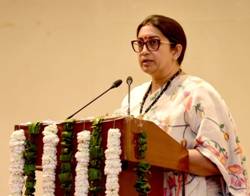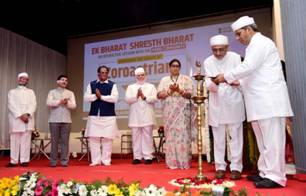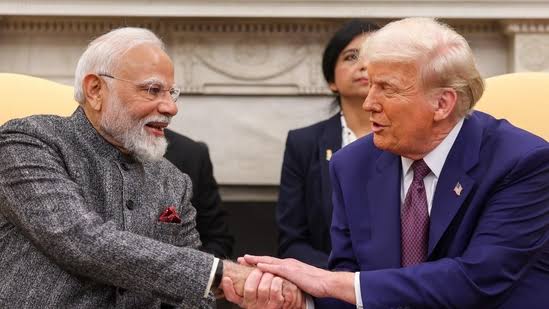In keeping with the spirit of “Ek Bharat Shreshtha Bharat” (One India, Great India), the Ministry of Minority Affairs hosted a special event at the Delhi Parsi Anjuman to celebrate the rich history and contributions of the Zoroastrian community in India. This event, chaired by Union Minister for Minority Affairs and Women & Child Development, Smriti Z. Irani, served as a platform to acknowledge the community’s vibrant presence and exemplify the nation’s ethos of unity, diversity, and inclusivity.
 The event aimed to celebrate the Zoroastrian legacy by fostering meaningful interaction with community representatives. Having integrated seamlessly into Indian society for over a millennium, the Parsis, as they are also known, embody the ideals of a unified nation. Recognizing the importance of cultural exchange and understanding, the Ministry of Minority Affairs highlighted the community’s remarkable journey, marked by resilience, adaptability, and excellence. Their positive contributions have been felt across various sectors, including business, industry, philanthropy, and the arts, enriching the nation’s social and cultural fabric.
The event aimed to celebrate the Zoroastrian legacy by fostering meaningful interaction with community representatives. Having integrated seamlessly into Indian society for over a millennium, the Parsis, as they are also known, embody the ideals of a unified nation. Recognizing the importance of cultural exchange and understanding, the Ministry of Minority Affairs highlighted the community’s remarkable journey, marked by resilience, adaptability, and excellence. Their positive contributions have been felt across various sectors, including business, industry, philanthropy, and the arts, enriching the nation’s social and cultural fabric.
The gathering drew esteemed figures like Vada Dasturji Khurshed Dastur, the High Priest of the Shreeji Pak Iranshah Atashbehram, Udvada, and Shri John Barla, Minister of State for Minority Affairs. Representatives from various Parsi organizations across the country also participated, facilitating a productive dialogue about the government’s initiatives aimed at supporting the community and addressing challenges like population decline and language preservation. This open exchange of ideas fostered a sense of collaboration and understanding between the government and the community, paving the way for continued progress and support.
A significant outcome of the event was the signing of an MoU to establish a “Centre for Avesta-Pahlavi Studies” at the University of Mumbai. Avesta and Pahlavi, the ancient languages of the Zoroastrian faith, hold immense cultural and religious significance for the community. This initiative, undertaken in collaboration with the University of Mumbai, seeks to revive and develop the existing department after 21 years, offering certificate, diploma, and PhD programs. By investing approximately Rs. 11.20 crore, the Ministry aims to ensure the accessibility of these languages for higher education and preserve the unique heritage of the Parsi community. This effort not only safeguards the cultural legacy of the Parsis but also enriches the nation’s linguistic landscape and fosters a deeper appreciation for its diverse heritage.
Furthermore, the event witnessed the launch of improved guidelines for the “Jiyo Parsi” scheme. Designed to empower the Parsi community, this scheme offers financial assistance through Direct Benefit Transfers (DBT) to address challenges related to population decline. The revised guidelines aim to enhance outreach and coverage by collaborating closely with state governments and Parsi organizations. This improved accessibility ensures that the scheme reaches those who need it most, effectively supporting the community’s growth and well-being.
Union Minister Smriti Z. Irani stressed the importance of reviving endangered languages, not just for the Zoroastrian community but for minority communities across the nation. She expressed the government’s commitment to supporting the revival of other languishing languages, recognizing their vital role in preserving cultural heritage and fostering linguistic diversity. Additionally, she highlighted the significance of equipping young members of the Parsi community with essential skills and encouraged them to explore entrepreneurship opportunities with financial support from the Ministry. This focus on skill development empowers young Parsis to become active participants in the nation’s workforce and contribute to its economic growth, while also promoting self-reliance within the community.



